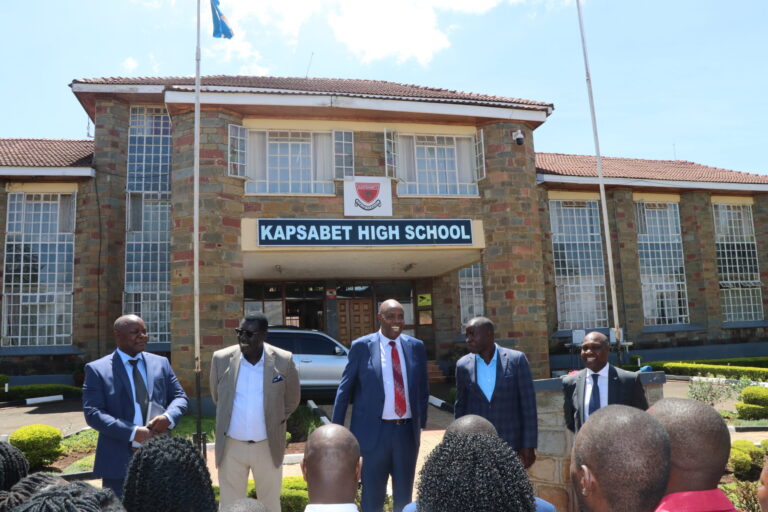School Principals Agree To Increase School Fees. Principals argue that they will have to increase tuition for the following term due to the government’s reduction in the per-pupil capitation fee.
This development constitutes a significant setback for parents whose children return to school on Monday, July 1, 2024, after a week-long half-term holiday. Principals will need to find new ways to keep schools operating after the government announced it could no longer afford the yearly capitation of Sh22,244 per child, reducing it to Sh17,000 instead.
The principals will need to oversee the Sh17,000 capitation that we have been paying out. Ezekiel Machogu, the cabinet secretary for education, said in a speech to the nation that “it is not feasible to distribute Sh20,000 per student per year.” He promised to ensure that capitation funds were disbursed on time. The principals have suggested increasing the fees for national schools from Sh53,000 to Sh69,000.
This hike is due to inflation and higher expenses. The Kenya Secondary School Principals Association met last week in Mombasa County’s Sheikh Zayed Hall to discuss crucial issues, including the delayed distribution of capitation funds.
KESSHA National President Willy Kuria told the Nation that stakeholders needed to assess the conference’s successes, challenges, and solutions. He asserted that the Sh53,000 in school fees is insufficient to cover the operating expenditures of national institutions. We had once asked the authorities to increase education costs to Sh69,000. We have submitted our proposed fee increase document to the ministry.
“The entire concept of capitation and school fees needs to be reviewed,” declared Kuria. Schools have only received half of the Sh22,244 per student that they are expected to receive each year this year. The state has only paid out Sh12,000, or almost 60%, of the Sh22,244 capitation per student.
School Principals Agree To Increase School Fees
To maintain the schools open for the entire year, this amount of money is insufficient. Kuria emphasized, “A new secondary school funding plan needs to be created.” Kuria brought up the topic of capitation problems in Kenyan schools and the need for the nation to reexamine its approach to funding education.
“The amount released from the Treasury is Sh17,000 instead of Sh22,244.” Kuria claims that after deducting Sh5,000 for infrastructure construction and Sh2,600 for the consolidated purchasing of books and activities, schools have roughly Sh10,400 left over.
He brought out the fact that when the Free Secondary Education program began in 2008, schools received a capitation of Sh10,260. “In spite of inflation, we still receive the same amount as in 2008.” The ministry declines to cover the cost of EduAfya and textbooks. “It’s time to involve parents and ask them to pay school fees,” declared Kuria. The Kenya Union of Post-Primary Education Teachers (KUPPET) interim general secretary, Moses Nthurima, described the challenges secondary schools face as a result of delayed capitation money.
Ministry Of Education Funding
“The Ministry of Education need to be held responsible for its failure to provide funding for events. Schools have a Sh3,000 shortfall for the first term, and as the second quarter draws to a close, no money has been sent in, Nthurima continued. This has made co-curricular activities more difficult. How can schools identify and develop potential without funding for competitions? He asked, bringing up the fact that government representatives usually outnumber instructors at national co-curricular activities.
Nthurima pleaded with CS Machogu and PS Dr. Belio Kipsang to return the funds to principals so that teachers could supervise extracurricular activities. Silas Obuhatsa, the president of the National Parents’ Association, charged that the government was allowing schools to fail. “How can directors run these institutions without funds?” he said. and asked parents to clear any outstanding amounts by paying their kids’ tuition on time.
School Principals Agree To Increase School Fees
The administration requested on Wednesday that headteachers make the most of the capitation that was provided because to financial constraints. Vice President Rigathi Gachagua underlined the challenges posed by growing public debt and payroll costs, emphasizing that the government must borrow money for development after allocating revenue to counties.
While reassuring principals that the state is working to expedite procedures for timely money transfer, Gachagua urged vigilance in resource management. He also encouraged principals to begin revenue-generating businesses such as dairy and agricultural production in order to supplement their cash.
